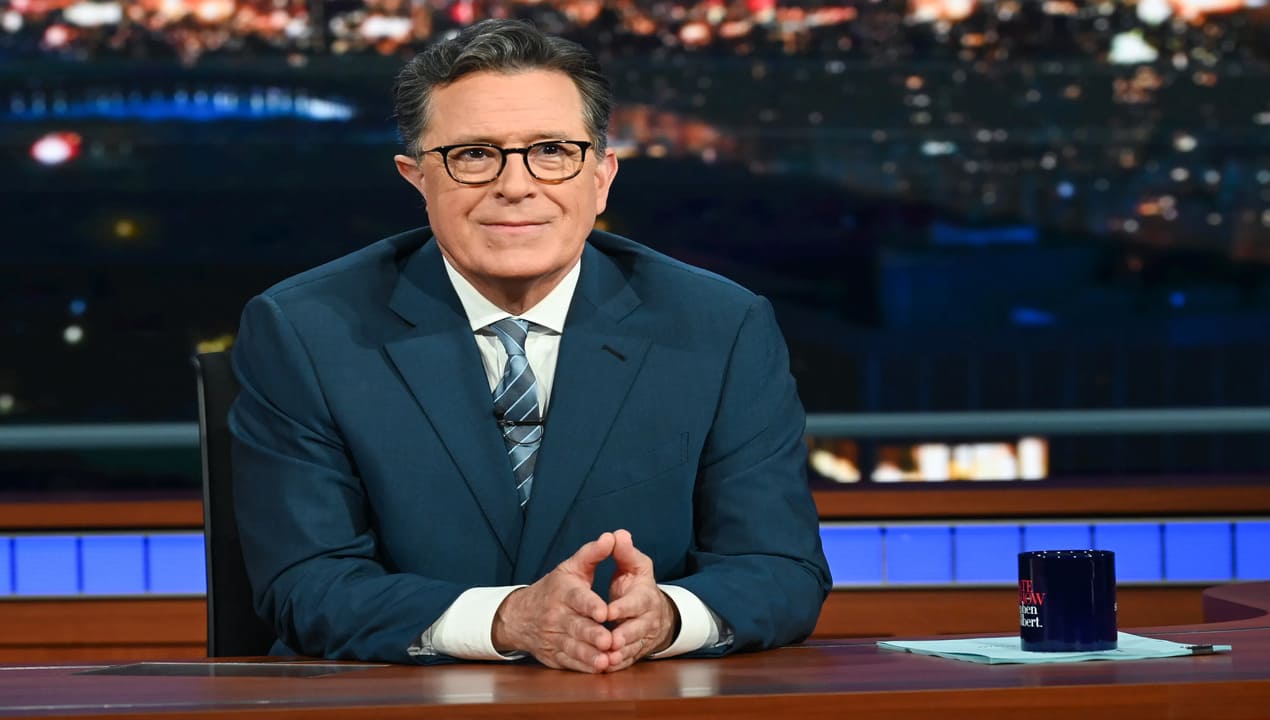
Independent Report – Stephen Colbert has become the latest victim in the ongoing decline of late-night television. Even before the recent cancellation of “The Late Show with Stephen Colbert,” the format had been struggling to maintain its place in the rapidly changing media landscape. The decision to end one of the most well-known late-night shows came shortly after Stephen Colbert publicly accused the network’s parent company of bribing former President Donald Trump to secure approval for a major corporate merger. This sequence of events has led many liberal politicians, artists, and entertainers to claim political interference played a role in the cancellation.
Vermont Senator Bernie Sanders voiced strong criticism on social media, stating that Colbert’s outspoken opposition to the merger deal was followed suspiciously quickly by the show’s cancellation. Sanders implied the timing was no coincidence, suggesting political motives behind the decision. On the other hand, CBS executives emphasized that the cancellation was purely a financial matter. They pointed to the difficult economic environment surrounding late-night television and denied any connection between the show’s end and its content or external controversies.
Regardless of the political debate, the late-night format has faced significant challenges for several years. Cable television audiences have steadily declined as many viewers, especially younger ones, cut the cord and shift their attention toward streaming platforms. Social media apps like YouTube and TikTok have become popular destinations for quick entertainment, making traditional, hour-long late-night programs less relevant to modern audiences. This shift has resulted in shrinking TV viewership and decreased advertising revenue, putting pressure on networks to reconsider their investments in late-night shows.
In past decades, late-night hosts such as Johnny Carson and Jay Leno enjoyed massive, loyal audiences who tuned in nightly. Today, however, viewers often prefer short clips available on social media, which they can watch anytime. The financial impact of this change is evident in the steep drop in advertising revenue for Colbert’s show. Since 2018, ad income has fallen by 40 percent, a major reason cited by CBS for deciding to end the show in May 2026.
Also Read : Mexican Truck Improve English to Meet U.S. Language Rules
A former television executive highlighted the broader economic struggles facing broadcast TV. Fifteen years ago, a top late-night show like “The Tonight Show” could generate $100 million annually. Recently, “The Late Show” has been losing an estimated $40 million each year. According to data from Guideline, an advertising tracking firm, the show’s ad revenue dropped from $121.1 million in 2018 to $70.2 million last year. Nielsen ratings also show a decline in viewers, with the peak average audience during the 2017-2018 season at 3.1 million, falling to 1.9 million by the end of the most recent season in May.
Comedians like Colbert have tried to follow their younger fans to digital platforms, with networks posting clips on YouTube and TikTok. However, revenue from digital advertising has not compensated for the losses from traditional TV ads. A television insider explained that reruns of popular prime-time shows cost less to produce and can sometimes draw more viewers, making them more financially appealing than costly late-night productions.
The cancellation of “The Late Show with Stephen Colbert” is part of a larger pattern in which the late-night genre continues to shrink. When James Corden left “The Late Late Show” in 2023, CBS chose not to replace him. Additionally, the network ended “After Midnight” earlier this year after host Taylor Tomlinson decided to focus on stand-up comedy full-time. These changes reflect how broadcast networks are reducing their commitment to late-night programming in response to changing viewer habits and financial pressures.
The timing of Colbert’s show cancellation was especially sensitive due to Paramount Global’s ongoing $8.4 billion merger with Skydance Media, which requires approval from the Federal Communications Commission. Earlier this month, Paramount settled a lawsuit filed by Donald Trump regarding a “60 Minutes” interview with his 2024 Democratic challenger, Kamala Harris. Two days before the cancellation news, Colbert described the settlement payment as “a big fat bribe,” stirring controversy.
Many voices within the entertainment industry and Democratic lawmakers have called for investigations into whether political pressure influenced CBS’s decision. The Writers Guild of America and Senator Edward Markey have demanded answers from Paramount’s chair, Shari Redstone, asking if the Trump administration used regulatory authority to affect the company’s editorial choices. While Markey acknowledged that Paramount has the right to dismiss Colbert for his political views, he stressed that if government pressure influenced the decision, the public deserves transparency.
A spokesperson for Redstone declined to comment on these allegations. Meanwhile, Tom Nunan, a veteran producer and co-head of the producers program at UCLA’s School of Theater, Film and Television, described the situation as emblematic of a difficult new era for artists, writers, and journalists. He said the news about Colbert’s cancellation was “shocked but not surprised,” highlighting the growing uncertainty facing creative professionals in today’s media environment.
In conclusion, the end of “The Late Show with Stephen Colbert” reflects both the financial difficulties of traditional late-night television and the politically charged atmosphere surrounding media companies. As audiences continue to evolve, and political tensions rise, the fate of long-standing broadcast formats remains uncertain.
Also Read : Bruno Mars Jokes: Duet with Rosé Almost Paid Off My Debts!